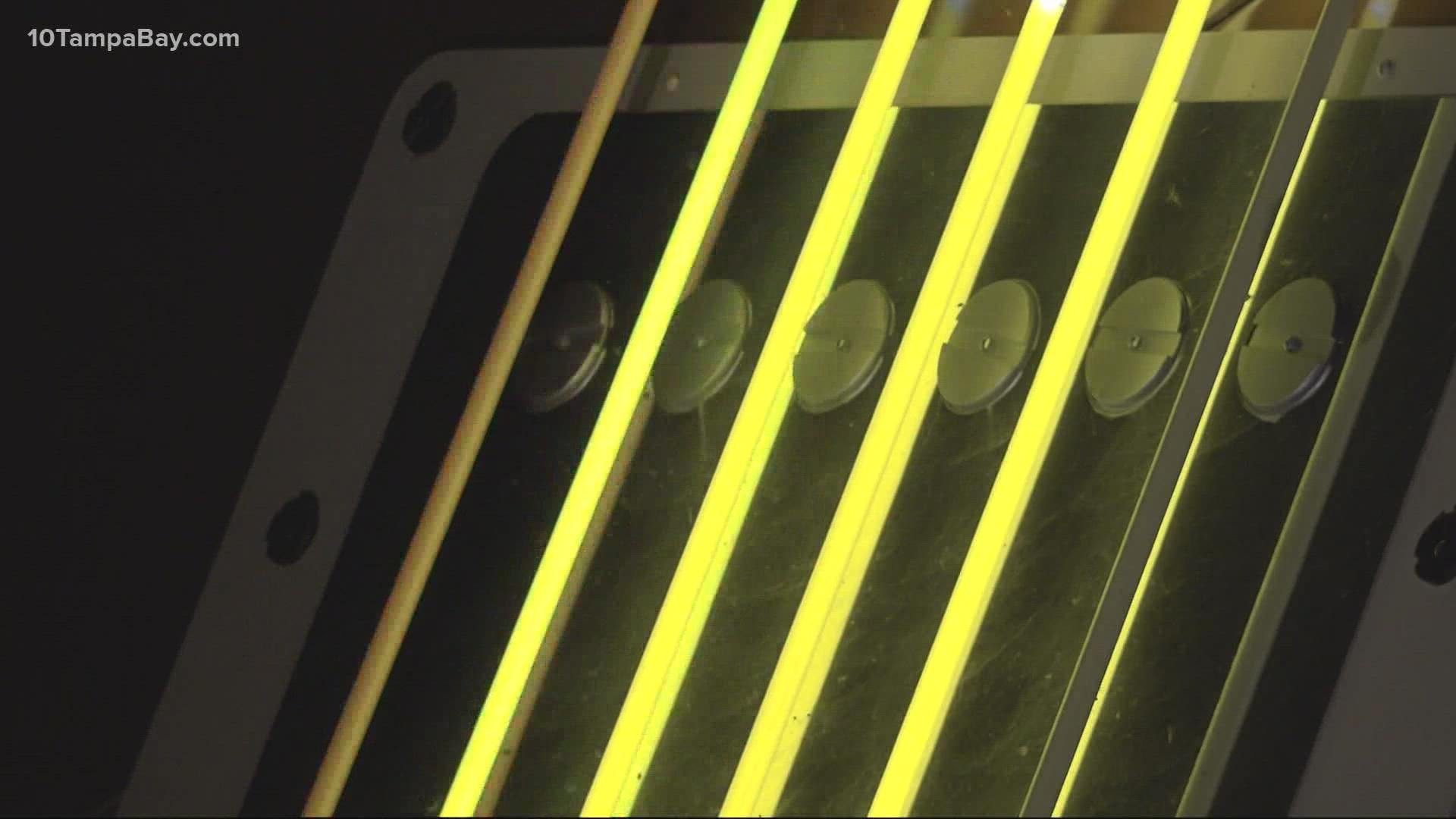HILLSBOROUGH COUNTY, Fla. — The Seminole Tribe of Florida has shut down its online sports betting app after being dealt its latest legal defeat in a case that has halted a massive expansion of gambling throughout Florida.
The Tribe on Saturday said it will temporarily stop taking bets on its Hard Rock Sportsbook app in response to a federal appeals court decision rejecting its request to allow wagering to continue as it pursues an appeal.
"Despite the decision, the Seminole Tribe looks forward to working with the State of Florida and the U.S. Department of Justice to aggressively defend the validity of the 2021 Compact before the Appeals Court, which has yet to rule on the merits of the 2021 Compact," Seminole Tribe spokesperson Gary Bitner said in a statement.
As a result of the app being halted, Bitner says account balances for all current players will be refunded as requested.
"Due to yesterday’s appellate court decision, the Hard Rock Sportsbook mobile app will temporarily suspend accepting new bets and deposits. Player information and account funds are safe and secure, and the app will remain online for easy withdrawals via all payment methods," a tweet from the Hard Rock Sportsbook app reads.
RELATED: Court denies Seminole Tribe's second attempt at pausing ruling that struck down gaming compact
On Friday, an appellate court in the District of Columbia denied the Tribe to continue sports betting within the state while they appeal a federal ruling that essentially ends their gaming compact.
Originally, the Tribe last week requested a stay from United States District Court Judge Dabney Friedrich, who initially struck down the compact.
Judge Friedrich was also unpersuaded, stating that the Tribe's motion raised “serious legal questions” and failed to show the previous decision would cause them irreparable harm.
It may not be until 2023 when sports betting returns, according to gaming law attorney Daniel Wallach.
He says sports betting could return through three pathways. The most likely being a voter referendum as soon as next year’s general election.
That could force the Seminole Tribe to lose exclusive rights over sports betting and allow the market to open through various competitors, but Wallach said that’s the path with the least resistance.
A new agreement allowing for in-person-only sports betting on tribal lands is also possible but would cut the majority of profit the Tribe earned, so far.
Wallach said the various companies and partners involved with the Tribe may have also influenced their decision to suspend. They, too, could face litigation over the federal court’s ruling.
While the Seminole Tribe said it will refund anything still left in the existing accounts, Wallach says bets made prior to the stay denial are technically invalid, raising legal questions.
While the Tribe isn’t required to report their earnings, Wallach says the revenue raked in during the few weeks the app existed could be in the millions.
The Seminole Tribe's second filing comes after Judge Friedrich found the multibillion-dollar agreement between the state and tribe allowing online sports betting violated a federal rule.
That rule is the Indian Gaming Regulatory Act, which does not allow bets to be placed off tribal land even if the servers processing those bets are on tribe property.
The sports betting law is also in violation of the state's own constitution, according to Friedrich. The law violates amendment three of the state constitution, which voters passed in 2018. It gives Floridians the right to vote on issues related to gambling that occurs off tribal land.
According to Friedrich, the Secretary of the Interior, Deb Haaland, received a copy of the gaming compact in June. However, since they took no action in 45 days, they automatically defaulted and approved the compact.
Friedrich said Florida lawmakers could come up with a new gaming compact that allows online gaming solely on Indian lands. Alternatively, Floridians could also authorize online sports betting if the topic is placed on the ballot in next year's election.

